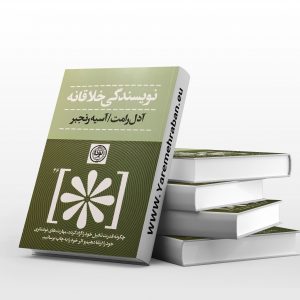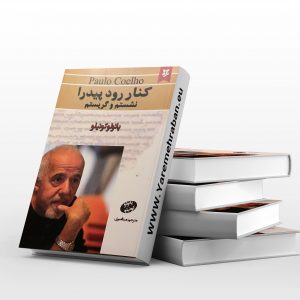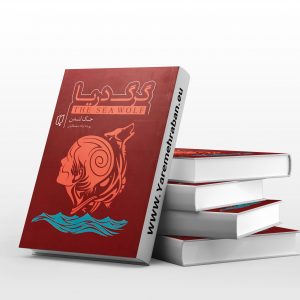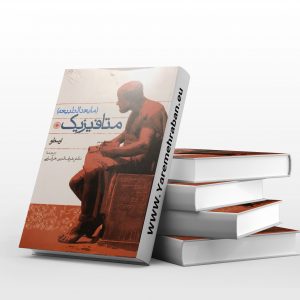Description
The divine comedy is the masterpiece of the Italian poet Dante Alighieri. In this book, Dante expresses his personal view, as a fanatical Christian, of the ultimate destiny of man.
Divine Comedy Book
We all have a vague picture of life after death. Although detailed descriptions of this life have been written in the heavenly and religious books, there have been writers throughout history who have written books on the subject using these texts and their own poetic imagination.
John Milton’s “Paradise Lost” and Dante Allegri’s Divine Comedy are among the most important examples in the history of Western literature.
What is the structure of the divine comedy?
Dante wrote this book in Italian and in the form of poetry. Dante’s divine comedy is considered a great masterpiece in Italian literature and perhaps the closest example in Persian literature to this book is the “Shahnameh” of the sage Abolghasem Ferdowsi. With the difference that the theme of Shahnameh is myth and the theme of Dante’s divine comedy is religious.
Dante was a fanatical Christian, which is why in his masterpiece, Divine Comedy, he describes his view of life after death. Dante wrote the book “Divine Comedy” in three volumes. Hell, purgatory and heaven.
One of the important points about comedy books. Repeat the number 3. Because Dante was a devout Christian, he used the number three as a symbol of the Trinity (Father-Son-Holy Spirit).
In addition to being written in three volumes, each volume has thirty-three chapters, totaling ninety-nine chapters. Dante also wrote a chapter as an introduction that brings the total number of chapters in this book to one hundred. Interestingly, Dante’s Heaven, Purgatory and Hell each have nine floors.
Dante’s writing style also changes in these three volumes, the chapters in the book of Hell are very turbulent, and this indicates the turmoil of the people of Hell in hell. And on the cover of heaven, the chapters are completely united, which also shows the unity of human beings in heaven with God.
The story begins where Dante describes his imaginary journey to readers. He is walking in a forest when Virgil, the famous ancient Roman poet, suddenly enters the story.
Dante must have been dead to see hell and purgatory and heaven, but now that he is alive he must enter those places to enter with one of the dead. Virgil accompanies Dante in hell and purgatory, and in heaven, Beatrice accompanies Dante in love.
From the very beginning of the book, Dante introduces the reader to the middle of the story without any introduction:
“… Halfway through life, I found myself in a dark forest …
I woke up and fell asleep neglected …
“Because the right path was completely lost and lost …”
Famous people mentioned in “Divine Comedy”
Almost all the characters and all the events that are narrated in this book are symbols and representations of an important subject. For example, Dante in this book is a symbol of all human beings, because death is an undeniable factor. The journey that Dante goes on in each volume shows specific theories, hell shows the effects of sin, purgatory shows the salvation of the soul and heaven shows the union of man with God.
Virgil is a symbol of logic and reason, which is why he can accompany Dante in hell and purgatory, and finally Beatrice, who is a symbol of divine salvation and accompanies Dante in heaven.
Perhaps in no book can we see so many celebrities in one place as much as Dante’s Divine Comedy. From ancient Greek philosophers such as Aristotle, Plato, and Euclid to governors such as Achilles and Alexander the Great. Dante brings these characters into his book to tell the reader that death happens to all human beings and is the only undeniable phenomenon of existence.
Italy’s most famous poet; Dante Alighieri
Dante Alighieri is an Italian poet, philosopher, and thinker born in 1265 in Florence. As a child, Dante Alighieri was involved in war and political unrest between the Pope and the Royal Party of Italy. Dante was convicted of misappropriation of state property by a court in Florence in 1302, and was exiled from Florence for two years, but this sentence soon changed to another order, which was to burn Dante alive.
This sentence prevented Dante from ever returning to his hometown of Florence. Some believe that Dante’s divine comedy is indeed an exaggerated example of his own life in exile. The impact of these political turmoils is evident in Dante’s Hell. Dante fell ill in 1321 AD while on vacation in Venice and died there.
In his youth, Dante Alighieri fell in love with a girl named Beatrice and composed most of his poems and ode to describe her. Beatrice Dante’s lifelong love died at the age of twenty-four due to an illness. After Beatrice’s death, Dante undertook to write a masterpiece to immortalize the memory of his lost love. Dante dedicated the Divine Comedy to Beatrice.
“Divine Comedy” according to the translator
Farideh Mahdavi Damghani is a prolific translator who has translated six hundred books so far. Farideh Mahdavi Damghani, the daughter of Dr. Ahmad Mahdavi Damghani, a former professor at the University of Tehran, is fluent in English, French, Italian and Spanish.
She has received more than forty national and international awards and badges, and the “Camen Datre” badge, the highest medal of merit in Italy, was awarded to Ms. Damghani in 2006. He is the first non-Italian to receive the award.
At the age of fourteen, Farideh Mahdavi Damghani read the book Divine Comedy in French. He was immediately impressed by this masterpiece and decided to translate the book in the future. Before translating the book, he also studied Divine Comedy in English to get a better view of the book.
Farideh Mahdavi Damghani has selected works that have a religious or mystical meaning for translation. His main interest is the translation of works of classical literature. Milton’s “Paradise Lost,” Goethe’s “The Sufferings of Young Werther,” and Umberto Eco’s “Island of the Past” are among the classics that have been co-published with the translator’s other books.
Farideh Mahdavi Damghani has translated books from Persian into other languages. He has translated the book “Sufficient Principles” by Sheikh Klini and “Sahifa Sajjadieh” into French.
Great thinkers have translated Dante’s divine comedy into Persian. The oldest translation of this book was published in 1335 by Amirkabir Publications and its translator is Shojauddin Shafa. Recently, Dr. Mir Jalaluddin Kazazi has translated the book of Divine Comedy, he named this 3-volume literary work “The Divine Laughter”.
Why read this book?
Divine comedy is one of the literary masterpieces of the world and this position can be a reason to read this book. If this reason does not convince you, you can refer to the articles that have been written about this book. Dante’s masterpiece has been studied from the perspective of religions, psychology, anthropology, etc. in all the years after its publication. In the history of world art, one can see lasting and brilliant traces of divine comedy in paintings and visual works.
We read in a part of the book
Gate of Hell; Story: Arriving at the gate of hell, two poets read an inscription written on the entrance stone. They enter and find themselves in the corridor of hell. Where the foxes and herdsmen are constantly flying in search of the flag …. After passing that place, they reach the Akron River.
The spirits of all sinners and outcasts go there after death to be taken to hell by Karen, the boatmen of hell, … Karen refuses to take a living being like Dante until Virgil takes her seriously. Convincing.
While they are witnessing the departure of a number of ghosts who board a boat to reach hell. Rials The banks of the river suddenly begin to shake. The earthquake begins so severely that Dante loses consciousness.
Although Dante and Virgil pass through the gates of hell, they have not yet really entered the abode of the sinners. They will arrive when they cross the Akron River. On the other hand, even after crossing the first circle called the limbo (or mystics of hell), they still do not fully face the accursed.
1- Introducing the book on YouTube
2- Introducing the book in Aparat














Reviews
There are no reviews yet.